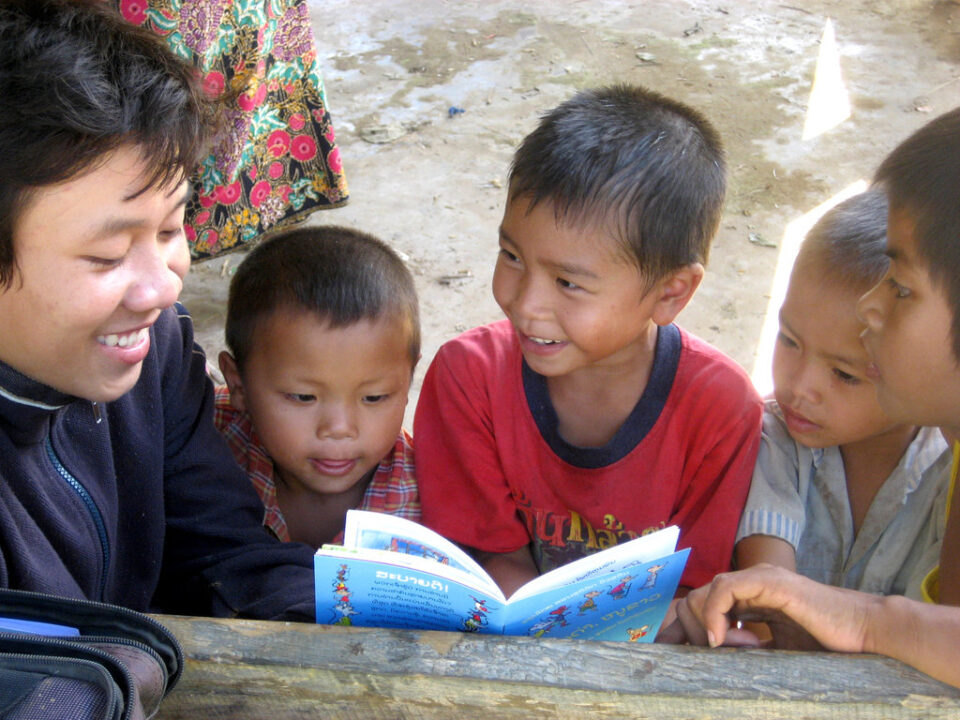After lunch, Zhao Xuecheng sneaked a break and picked up a book about the prevention of plant
diseases and insect pests for vegetables.
Reading or borrowing books from the local rural library, or farmers’ book house, has become
habitual for the 53-year-old farmer from Gaodunying village, Xiaguanying township, Yuzhong
county, northwest China’s Gansu province.
Zhao, an outstanding vegetable grower, told People’s Daily that he often reads books about
farming at the farmers’ book house, as he believes that one should love and invest in what he or
she does for a living.
On the book shelves of the farmers’ book house in Gaodunying village, which is among the first
batch of rural libraries built in Gansu province, there are books about agricultural planting, novel
breeding, and law, as well as masterpieces of world literature.
“We have a total of over 15,000 books. Residents can either read the books at the library or borrow
them,” said librarian Jing Zhenghong, pointing to a thick registration book on which the
information of the borrowers is recorded.
“Books about agricultural skills are the favorites of the residents,” Jing said. According to him,
local farmers would always visit the library to seek better ways of vegetable planting when they
are not kept busy by farming chores.
“Gansu province started piloting the rural library program since 2005, and the program covered all
administrative villages in the province seven years later,” said Wang Chengyong, deputy chief of
the Publicity Department of Gansu provincial Party committee.
So far, Gansu has built 16,321 rural libraries, housing 31 million books. Each farmer in the
province has access to an average of 2.6 volumes, and around 120 books are borrowed annually
from each rural library. A total of more than 2 million books are borrowed a year across the
province.
Each year, these farmers’ book houses get about 6,000 volumes from the Gansu Provincial Library,
and their inventory is replenished every six months. The province is divided into seven sections
based on natural conditions, cultural backgrounds and customs for targeted distribution of books.
Besides, the government also offers training sessions of agricultural skills at these rural libraries.
By integrating rural library and public library resources, Gansu province is making books more
accessible for the people.
In the past, rural libraries and public libraries were independent from each other, but now readers
can borrow and read books at libraries in many places with only a library card, which can be
applied for with an ID card, said Li Xuhong, deputy director of the management office of Gansu’s
rural library program.
“The books borrowed from public libraries can be returned to farmers’ book houses,” Zhao
Xuecheng noted.
“This is the book you wanted a few days ago,” said Gu Weidong, passing a book to villager Gu
Zhenglin. Gu Weidong is the Party head of Xiling village in Dahe township, Sunan Yugur
autonomous county of Gansu province. He’s also a librarian of the farmers’ book house in the
village. To deliver the book, he spent nearly an hour on horseback.
According to Gu Weidong, villagers’ enthusiasm for reading and borrowing books was low in the
113-household village as there was a huge distance between them and the farmers’ book house. To
solve this problem, the village decided to make the library ” movable” – it is delivering books to
the villagers by horse. So far, the “library on horseback” has made over 1,000 deliveries and
received more than 300 phone calls for book reservation.
In addition, farmers’ book houses are also a great place for rural children. “Many children come to
farmers’ book houses for studying and reading when school is over,” said Ni Haijiang, librarian of
a farmers’ book house in Shiziping village, Mapaoquan township, Maiji district, Tianshui, Gansu
province.
“Compared with urban children, rural children have less access to knowledge, so the farmers’ book
houses are an important bridge linking them with the outside world,” Ni explained.
The farmers’ book houses have become a “second classroom” for rural children as many of their
parents are working out-of-town. “Every day there are about 20 children reading here,” Ni said.
The farmers’ book house where Ni works currently has more than 7,000 books.
The farmers’ book houses are following the steps of the times. In 2019, a digital application of the
book houses was launched. So far, it has attracted over a million rural readers.
Compared with brick-and-mortar libraries, the digital application comes with much more
resources, providing over 33,000 books, 600 electronic journals, 19,000 videos and audios, 77,000
minutes of online lectures and 280,000 minutes of audio books. It has received more than 25
million visits.
From farmland to online library, farmers’ book houses are bringing new lifestyles and images to
Chinese rural residents.



